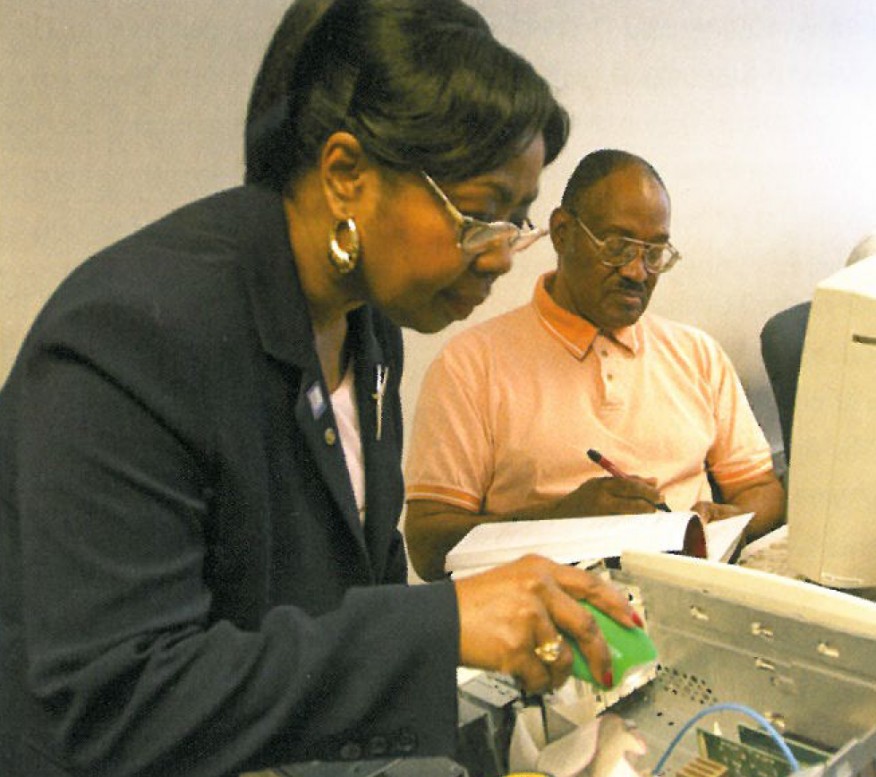As President and CEO of Goodwill Industries of Greater Detroit, Delois Whitaker Caldwell ('73) leads an organization dedicated to serving those in the community with special needs. Through various job skills training programs and services, Goodwill facilitated more than 1,000 job placements in 645 businesses during 2002 alone. "We are truly a labor market intermediary-we are talking with employers to assess their needs and connecting our trainees with jobs where they can be successful."
After earning her MSW degree, Caldwell worked in a drop-out prevention program in the Detroit school system, where she supervised several counselors. After being back in the workforce for only a year, there was a teacher strike. "I met a lot of people on the picket lines. Some advised me of jobs that were open to someone with my education. I had several interviews, but after the strike I went back to my job and completed the semester. However, I was very interested in the opportunities available with the State of Michigan."
Early the next year, she accepted a job in the Michigan State Department of Social Services, in the Wayne County Zone Office as an Employn1ent and Training Specialist. Over the years, she held various managerial positions and was promoted through the system. By the time she left the State on early retirement in 1997, she was the director of the Family Services Administration (now the Family Independence Agency), which included indirect responsibility for 13,000 of the 14,000 people employed by the Department, with responsibility for all program/policy offices and 83 county operations.
"After State employment, I served on several boards and committees, as well as teaching for a semester at the School of Social Work. An executive search firm called me about the Goodwill Industries position. Frankly, I'm surprised that I had worked in this field as long as I had and didn't know all that Goodwill offered. I felt the job was a perfect match for me, and I started as CEO in March of 1998.
"Goodwill does so much more than sell items through thrift stores- it's quite comprehensive. We offer vocational support, job training, transitional work experience and job placement services to provide packaging, light assembly and reclamation as a source of training and job placement."
Her work in community practice while at U-M "taught me to see things in a systemic way, how systems work and how they interact with one another. When I was with the State, my staff and I developed policy and programs for the entire state. We had to consider things on a broad level, to determine whether what we were doing helped or hindered families who were trying to meet their needs for self, family and community. Policy can either support strong families or it can put up barriers that may cause families to break up or be harmed. My experience in State service let me see it, but it was my education from U-M that helped me understand it."
She's a firm believer in the contribution that social workers make to society. "I think social work will always be necessary, and I wish that politicians relied more on the research being done in universities and foundations for setting policy that will really help people, rather than hinder, and sometimes hurt, them.
"Government does not do a better job of raising children than families doand we should define 'families' as broadly as necessary to reflect people's lives. Children do better in families where there is guidance, love and support; government's role should be to do what it can to assist that in happening.
"All of us-the government, the community, business and nonprofitswe have to work together to make this a society in which we all will enjoy living and can reach our full potential."
-Terri D. Torkko is editor of Ongoing
